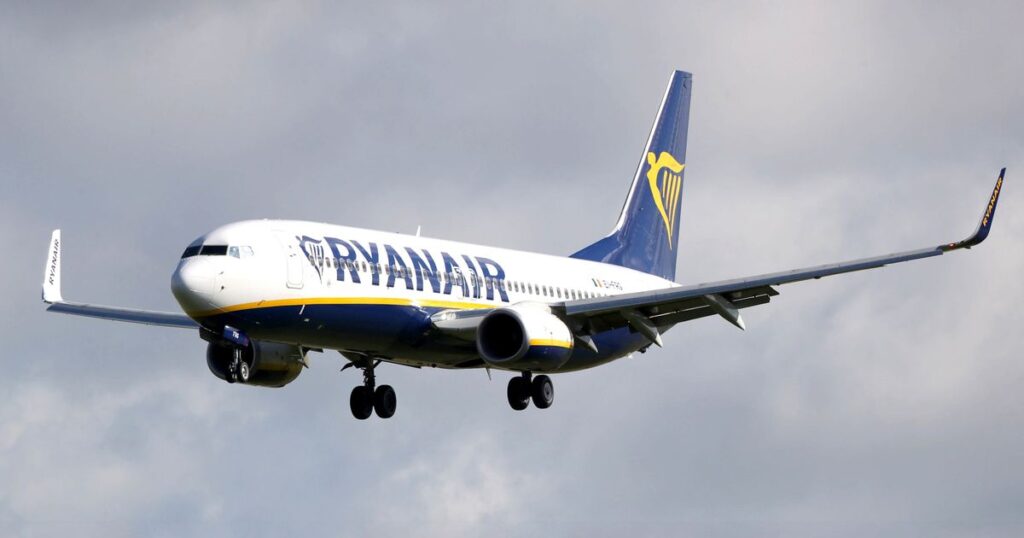Ryanair and Wizz Air have announced record passenger numbers for August, reflecting a robust resurgence in travel demand.
In what has been one of the industry’s busiest summers, Ryanair reported 20.5 million passengers, an 8% year-on-year growth, while Wizz Air carried 6.2 million passengers, marking a 1% increase.
Ryanair Leads with Impressive Growth
In August, Ryanair achieved a remarkable milestone by transporting 20.5 million passengers, representing an 8% increase compared to the previous year. With a highly impressive load factor of 96%, this growth underscores Ryanair’s strong market position amidst the competitive landscape. The airline’s rolling annual traffic surged to 192 million passengers, solidifying its status as a leader in the aviation industry.
Despite a decline in profits in July, which impacted airline stock prices including peers like IAG and Easyjet, Ryanair’s recent passenger data offers reassurance to investors. The carrier continues to demonstrate resilience and adaptability in a volatile market, maintaining investor confidence.
Wizz Air’s Steady Performance
Wizz Air’s performance in August saw a modest increase in passenger numbers, with 6.2 million passengers recorded, indicating a 1% rise. This achievement comes despite operational constraints, particularly challenges related to Pratt and Whitney engines.
The airline’s annual passenger traffic grew by nearly 10%, reaching 62.1 million passengers. Although the growth rate for the month was subdued, the overall yearly increase highlights Wizz Air’s capacity to navigate operational challenges effectively.
Potential Expansion into Package Holidays
Ryanair’s strategic considerations are evolving as it explores the potential of entering the package holiday market. This move is inspired by Easyjet’s successful venture into holiday packages, which has proven to be a lucrative segment.
According to investment director Russ Mould, Ryanair’s strategic shift towards packaged services may focus more on increasing fares rather than consumer convenience. By leveraging this strategy, Ryanair aims to boost its revenue streams in an increasingly competitive market.
The proposition of offering bundled travel services could potentially transform Ryanair’s business model, allowing it to capture a significant share of the holiday market.
Market Reactions and Investor Sentiments
Market reactions to Ryanair’s August performance have been cautiously optimistic. Ryanair’s stock experienced a slight uptick of nearly 0.5%, a positive indicator amidst the prevailing industry challenges. Wizz Air, on the other hand, saw a minor dip in its stock by 0.23%, reflecting varied investor sentiments.
The contrasting stock movements underline the broader market dynamics and investor perceptions of each airline’s performance during this peak season. Investors are closely monitoring these airlines’ strategic responses to ongoing challenges.
Economic Implications of the Aviation Surge
The surge in passenger numbers this summer has significant economic implications. Increased travel demand reflects broader economic trends and consumer confidence post-pandemic.
These record-breaking figures not only emphasize the aviation sector’s recovery, but also suggest a potential for economic growth, as tourism and trade activities gain momentum.
The aviation industry plays a crucial role in connecting global markets, and its recovery is pivotal to broader economic stability and growth, benefiting various sectors.
Future Outlook and Industry Trends
Looking forward, low airfares, as predicted by Ryanair CEO Michael O’Leary, could stimulate further demand, although they may impact profit margins.
Both Ryanair and Wizz Air are likely to continue adjusting their strategies to stay competitive. Industry trends towards sustainable travel and digital innovations are expected to shape future developments in the sector.
Despite current challenges, the long-term outlook for the aviation industry remains optimistic, with opportunities for innovation and growth in response to changing consumer preferences and technological advancements.
Navigating Challenges in Capacity Management
Effective capacity management remains a priority for airlines amidst rising demand. Wizz Air’s handling of engine-related constraints demonstrates its focus on operational efficiency, while Ryanair’s strategic fleet management supports its growth trajectory.
The record passenger numbers for Ryanair and Wizz Air highlight a strong recovery in the aviation industry.
Facing operational and market challenges, both airlines have managed to maintain growth and investor confidence, underscoring their strategic adaptability in a dynamic market.

